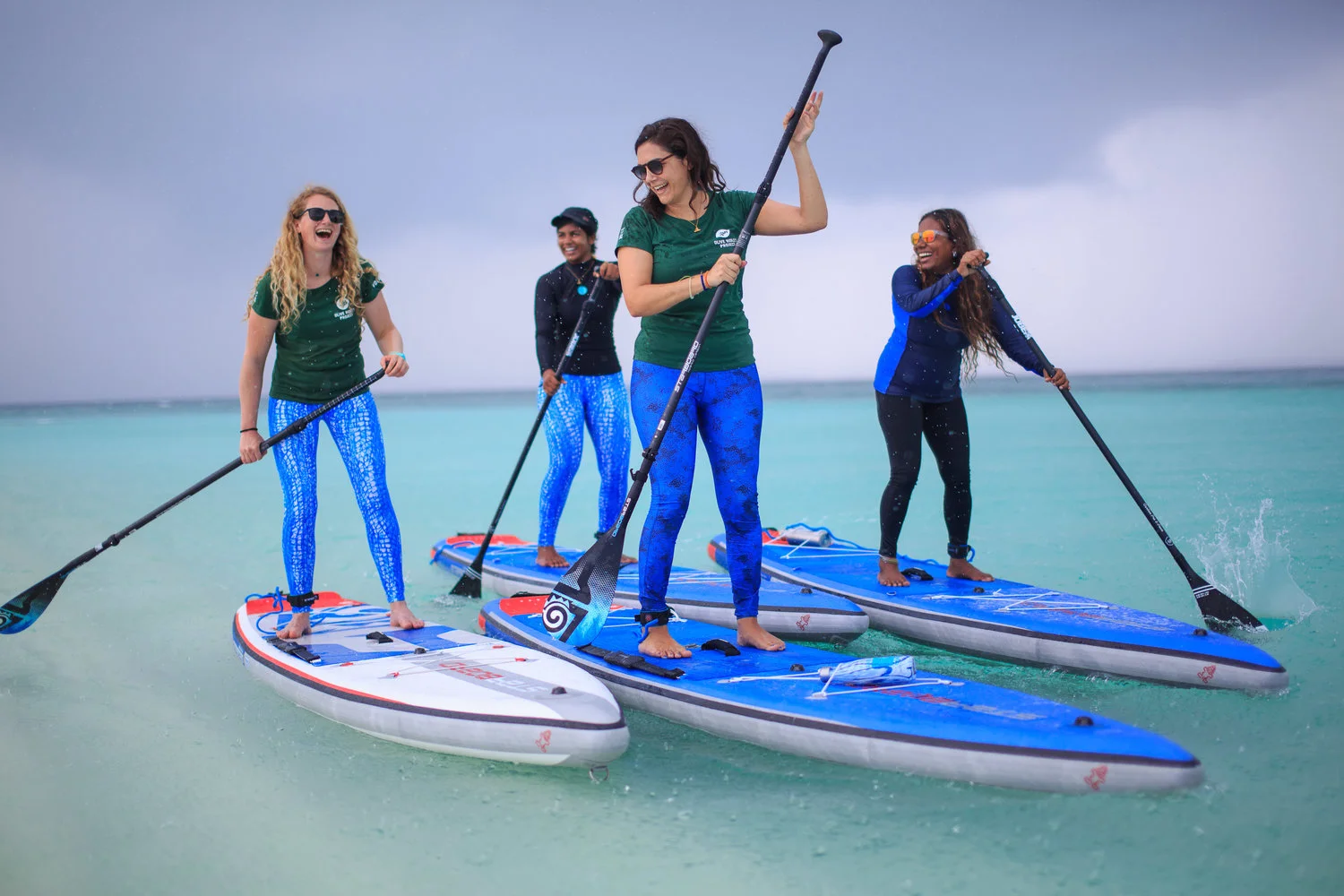In February 2019, four women completed an unprecedented stand up paddle-boarding (SUP) expedition in Baa Atoll in the Maldives. Backed by Ocean Ambassdors and a number of other organisations, their mission was to raise awareness of the need to protect marine life from the threat of plastic pollution and climate change.
Photo: Stand Up For Our Seas/James Appleton
Dr Claire Petros and Dr Cal Major, veterinarians from the UK, along with Maldivian Ocean Advocates Saazu Saeed and Dhafy Hassan Ibrahim, paddled a gruelling 100km over 8 days, the likes of which has never been done before in the Maldives. The women paddled in the beating sun, fighting dehydration and exhaustion, through unseasonal headwinds and waves and against strong currents, between 16 islands of the Atoll.
Photo: Stand Up For Our Seas/James Appleton
Photo: Stand Up For Our Seas/James Appleton
The Maldives is renowned for its pristine marine environment and abundance of wildlife, but it is also vulnerable to plastic pollution, coral bleaching and climate change. As the lowest-lying country in the world, The Maldives is made up of more than 1100 islands surrounded by coral reefs which support the ocean ecosystem. Due to warming seas, these corals are becoming bleached, with progressively less ability to regenerate. Plastic pollution is a huge issue with recent global media attention. It is a global problem, and experiencing it here, juxtaposed by wildlife, highlighted the importance of the need to tackle this problem urgently and globally.
The team delivered 3 school talks, and in one school the children gave their own presentation about the work they were doing to manage waste on their island. The reception to the SUFOS team was phenomenal, with local islands and resorts alike excited to share the positive changes they already had in place, proud to protect the local marine life, and eager to learn more. Many schools were working towards becoming plastic free, and as well as receiving the team's presentations, were encouraged to give their own accounts of the waste management practices being initiated on their home islands.
Photo: Stand Up For Our Seas/James Appleton
Photo: Stand Up For Our Seas/James Appleton
The team met with Dr Hussain Rasheed, the Minister of Environment, before setting out on their voyage, and his message was a clear global call to action: The Maldives is taking responsibility for its own carbon emissions, aiming to become the first carbon-neutral country. They are supporting plastic free schools programmes, and helping islands to become plastic free. Resorts are answering consumer demands to use less plastic, and most have desalination plants to make drinking water, removing the need for plastic water bottles. Fishing with nets is not permitted in the Maldives; pole and line methods are widely used instead: The nets arriving in ocean currents into the Maldivian waters, entangling the megafauna here, are usually from further afield.
Photo: Stand Up For Our Seas/James Appleton
Even with the Maldives making all the changes within their power, it is up to the global community to take action to prevent carbon emissions and climate change from irreparably destroying this country.
The expedition received copious in-country media attention and support, and was used as a vehicle to encourage continued positive change, and to inspire global action.
You can read about this expedition in more detail in the Projects section of this website, and also on Dr Cal Major’s blog post.







